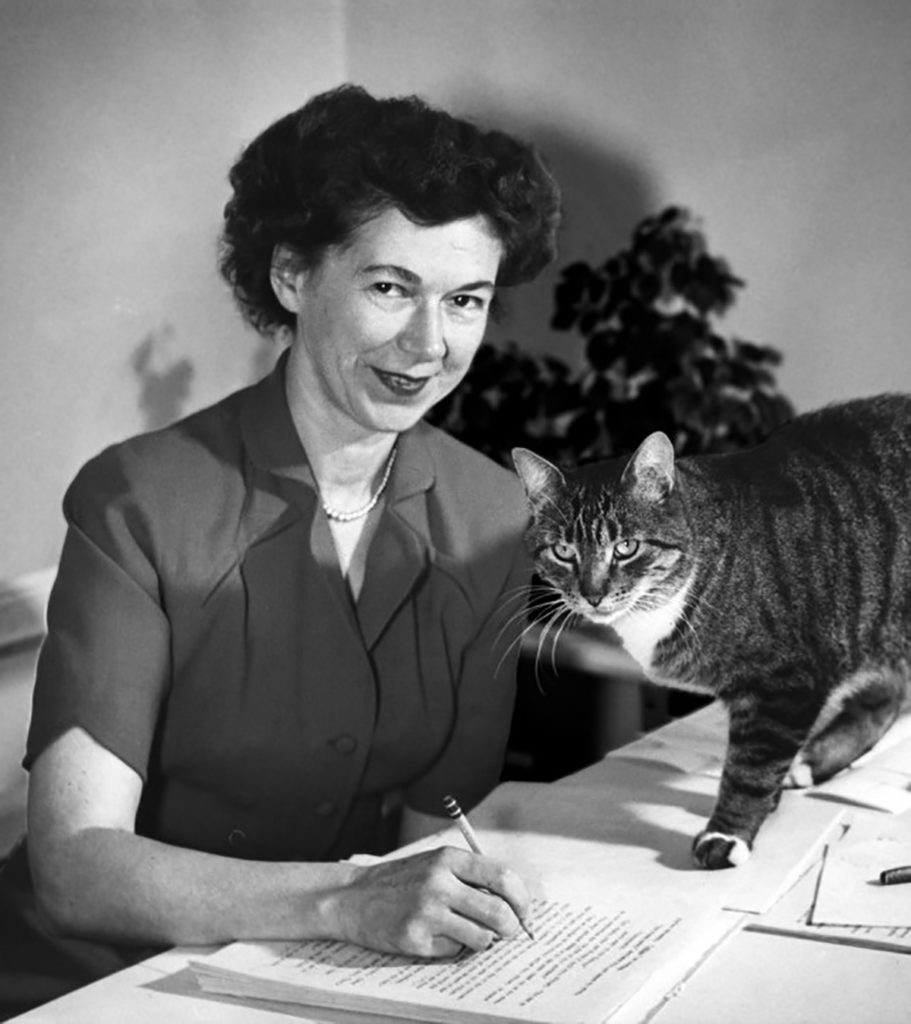
Just as generations of children read Little Women and proclaim themselves to be one of the March sisters—most of them, naturally, wanting to be feisty, rebellious Jo—scores of young readers have found themselves in the late, inimitable Beverly Cleary’s books, little girls in particular recognizing a kindred spirit in spunky heroine Ramona Quimby.
My younger self was not so easily charmed by Ramona—at least, not at first. Upon learning on Friday that Cleary had passed away at the age of 104, I remembered that her 1950 book, Henry and the Clubhouse, in which Ramona’s antics interfere with Henry’s construction of a “NO GIRLS ALLOWED” refuge, was the subject of the first book report I ever completed. I dug the cardstock likeness of Henry and his dog, Ribsy, out of our hall closet, flipped it over, and could not help laughing at how I’d described the younger Quimby girl. “Pesky, mischevious Ramona,” I’d declared in my spirited synopsis. “Trouble, that’s what she was.”
Ramona entered my good graces as soon as I discovered that she was the protagonist of her own series, and that, like me—like so many younger siblings—she was at once tired of being babied and scared that everyone around her was growing up too fast for her to catch up to them. It wasn’t that she tried to be a pest; it’s that sometimes she was just misunderstood.
Cleary’s books have a knack of achieving just the opposite: making children feel seen, heard, and above all, understood. Some of her novels tackle more serious situations, like divorce or a parent’s job loss, but most of the trials her characters face are relatively small—the mortification of being forced to wear woolen underwear to ballet class, or the ordeal of raising enough money to buy a shiny new bicycle. Such was Cleary’s gift: understanding that, to little people, even the small things feel quite big, and grown-ups too often fail to notice. She noticed.
Her prose is clear-eyed and simple, but never condescending. Cleary first fell in love with reading through the library that her mother set up for their little town of Yamhill, Oregon. When the family moved to Klickitat Street in Portland, which would become the setting of several of her novels, she was disappointed to find that almost none of the local library’s books were about regular, contemporary children like herself. She vowed to one day write books like those she wanted to read, a plan she brought to fruition after becoming a librarian herself and hearing, often from boys, “Where are the books about kids like us?”
Thus, Henry Huggins entered the world, along with other unforgettable characters like Ramona, her older sister Beezus, Ellen Tebbits, Otis Spofford, and more. Even nonhuman characters like Ribsy, Socks the cat, and motorcycle-riding Ralph S. Mouse got to be stars of their own novels. Cleary’s funny, sympathetic stories quietly revolutionized children’s literature—her true-to-life depictions of middle-class youth pioneered a boom in realistic children’s fiction, a genre that continues to fill shelves today. Among her many accolades were a Newbery Medal, two Newbery Honors, and a National Book Award, but the recognition for which Cleary felt most proud was that granted to her by her young readers. For decades, she took the time to answer their fan letters.
In Cleary, children found a friend, a confidant, a source of steadiness despite the turbulence around them. “I don’t think children have changed that much,” she once remarked. “It’s the world that has changed.” Reading so many of the eloquent tributes to her written this past weekend, I remain in awe not only of her, but of all those who, despite growing older, remember so distinctly what it is to be a child, helping the rest of us to remember, too.
After finding my old book report on Friday, I reread three of her books still on my shelves: Henry and the Clubhouse, Beezus and Ramona, and Ellen Tebbits. Instantly I remembered how much I’d enjoyed them, and was struck by their timelessness, in no way diminished by a few humorously now-dated details. Cleary’s characters and their predicaments are as funny and relatable today as they were to readers like my parents decades ago—and to me and my peers a generation later. May she continue to delight many generations to come.

